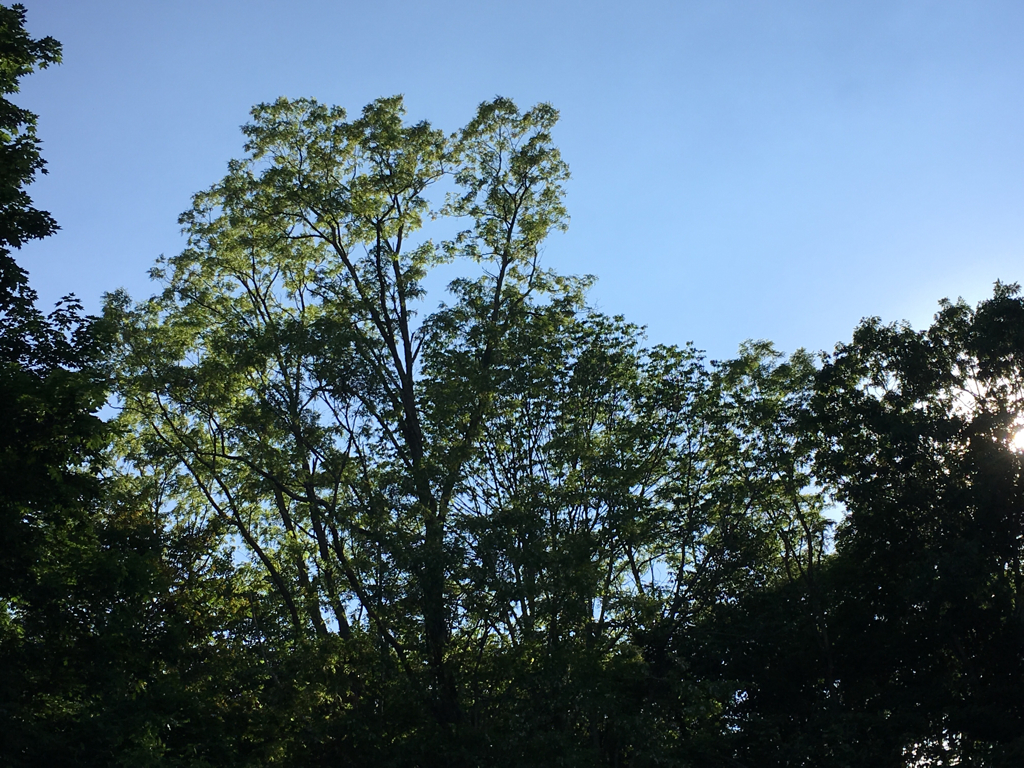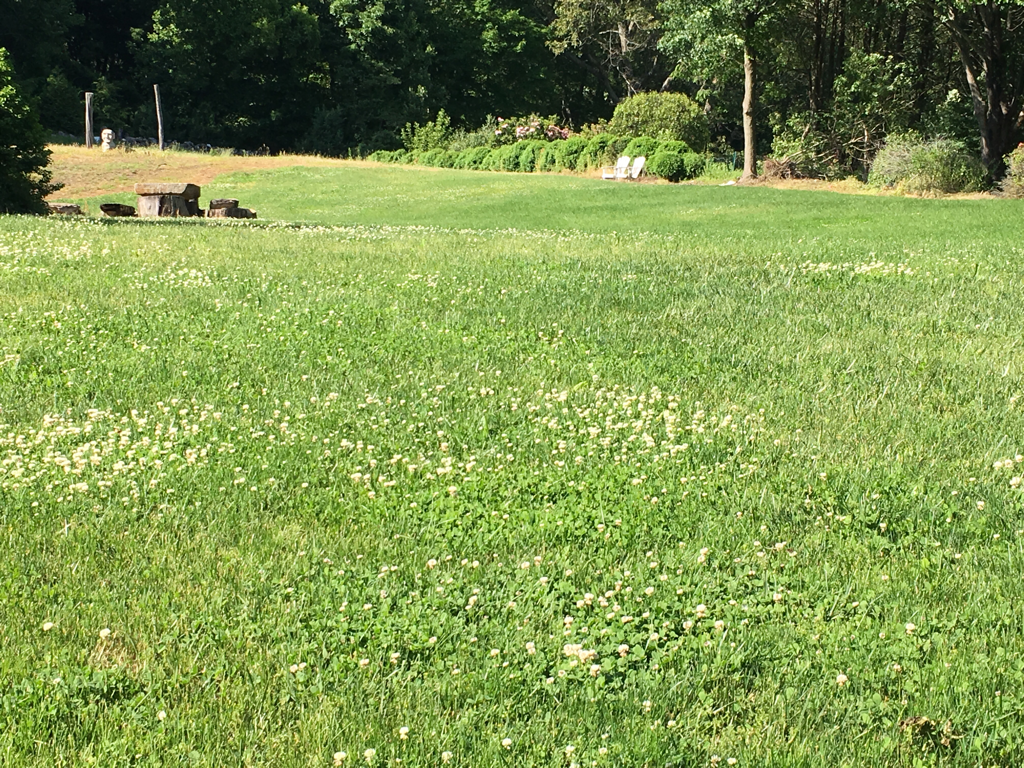|
I have a self-deprecating story about this tree (black locust). I’ve been staring up at this black locust and others for decades because they surround the Southwest border of our property. To the untrained eye, it is a scraggly, wasteland-like tree better suited for a mad max movie in a run down urban setting. In all my cocky infinite wisdom, I always used to point to it and bad mouth it to customers. “Look at that shitty tree over there! Scraggly, poor shaped, weedy-looking.” All would agree because they really had no choice- talking to someone who probably knew more than they did. They probably never noticed a black locust anyway. When I researched what type of wood lasts the longest as a post in the ground, I found out that- you guessed it- BLACK LOCUST lasts the longest, like two or three times longer than cedar. I marched straight out there and cut a few down to make posts. As I removed the bark, banana peel yellow flesh was exposed. I had never seen yellow wood before. A day later the color was gone, turning the color of all other debarked trees. My admiration and appreciation of/for black locust grew immensely, and my scorn turned to thanks to black locust as a species, grateful that they are in my life. I never looked at them with anything other than love ever again. The year that I researched honey bees and kept them in my yard, I discovered that black locust flowers sitting atop the 100’ (+) tall trees are THE favorite food of honey bees at that time of year that they flower -early June. Because the entire tribe of bees is directed to the black locust by the one ass-shaking discoverer bee, the honey produced in June is almost clear like water. My honey did just that, and my love and admiration for black locust trees grew exponentially. Now with the news telling us that 75% of American insects have been wiped out because of mankind’s bad polluting ways and habitat loss to strip malls and the like, I see the scraggly black locust as an oasis for those insects that are left to cohabit this earth with humans for as long as they can. These remaining insects go to black locust trees to mate, eat, and get shelter. Black locust, as shitty as it looks to humans, sure deserves our respect and admiration. The point of my story is getting lost in the telling, so I’ll wrap this post up by mentioning that I learned something about myself because of this tree. I learned not to be so critical, so self-important, and so judgmental, possibly a lesson for all of us. As much as you think you know, you might just not know much at all. Clover spreading with my permission through my lawn. I’m not unhappy with this. It’s keeping other weeds out I see, and blends nicely with turf grass. I also notice that my most hated turf pest- sod webworm- is absent where the clover is! No more of those crappy moths to hate. So far my experiment is proceeding well.
Comments are closed.
|
Archives
May 2022
Categories |
Winter hours-
|
Telephone(203) 261-3926
|



 RSS Feed
RSS Feed